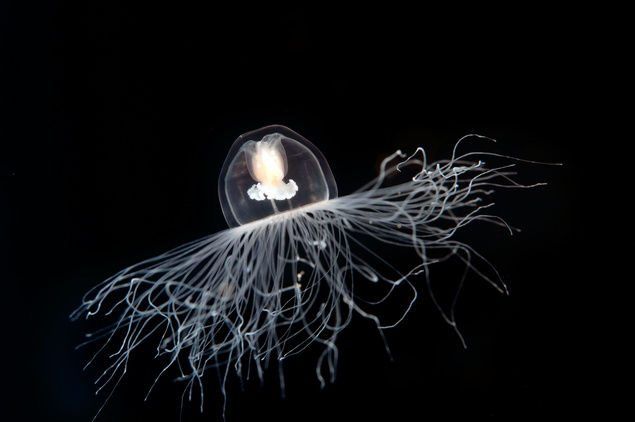
Transparent Immortal Jellyfish
The process behind the jellyfish's remarkable transformation is called transdifferentiation and is extremely rare.
Medusa cells and polyp cells are different - some cells and organs only occur in the polyp, others only in the adult jellyfish. Transdifferentiation reprogrammes the medusa's specialised cells to become specialised polyp cells, allowing the jellyfish to regrow themselves in an entirely different body plan to the free-swimming jellyfish they had recently been. They can then mature again from there as normal, producing new, genetically identical medusae.
This life cycle reversal can be repeated, and in perfect conditions, it may be that these jellyfish would never die of old age.
'We might be distracted watching much larger jellyfish, but the tiny things such as this can inform so much of our science about these animals,' says Miranda.
Medusa cells and polyp cells are different - some cells and organs only occur in the polyp, others only in the adult jellyfish. Transdifferentiation reprogrammes the medusa's specialised cells to become specialised polyp cells, allowing the jellyfish to regrow themselves in an entirely different body plan to the free-swimming jellyfish they had recently been. They can then mature again from there as normal, producing new, genetically identical medusae.
This life cycle reversal can be repeated, and in perfect conditions, it may be that these jellyfish would never die of old age.
'We might be distracted watching much larger jellyfish, but the tiny things such as this can inform so much of our science about these animals,' says Miranda.
Advertisements



